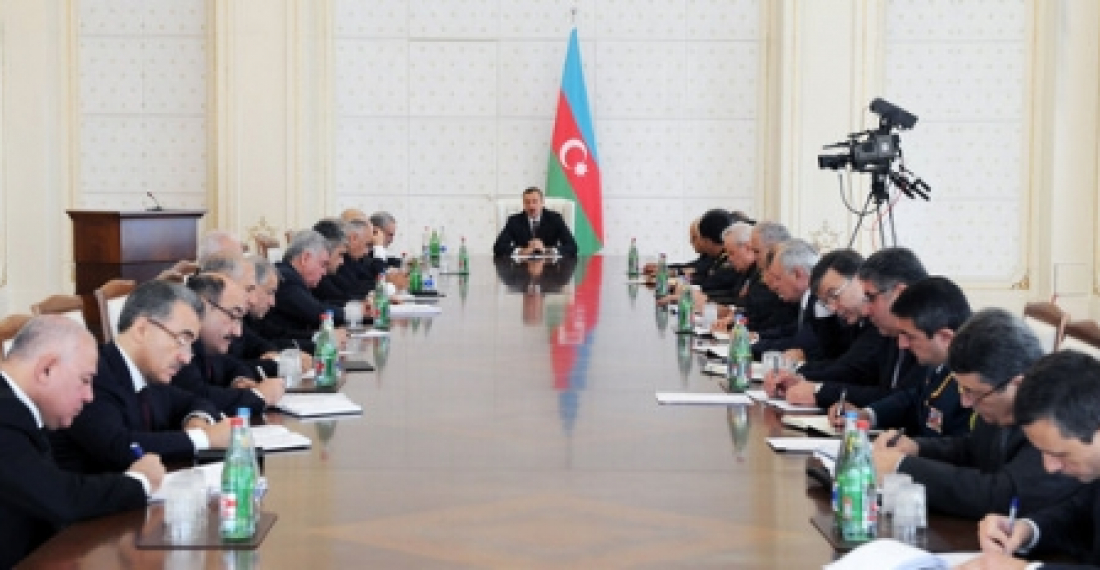The President of Azerbaijan Ilham Aliev has expressed disappointment at lack of progress in the settlement of the Karabakh conbflict. Speaking at a meeting of the Cabinet of Ministers he said that “Unfortunately, there is no progress in the settlement of the most difficult problem for us - the Armenian-Azerbaijani conflict over Nagorno-Karabakh".
The President reiterated that "Azerbaijan has a principled position, which is based on historical truth, and the norms of international law. We will not step back from this position. The territorial integrity of Azerbaijan is not and will never be a subject of negotiations. We will strive, using all possible, to restore our territorial integrity”,
The Cabinet meeting focused on the outcomes of the country’s socio-economic development in 9 months of 2011.
source: commonspace.eu with reports from APA and AzerTAc.
photo: President Aliev addressing a meeting of the Azerbaijan Cabinet of Ministers on 24 October 2011 (picture courtesy of the Press Service of the President of Azerbaijan)







